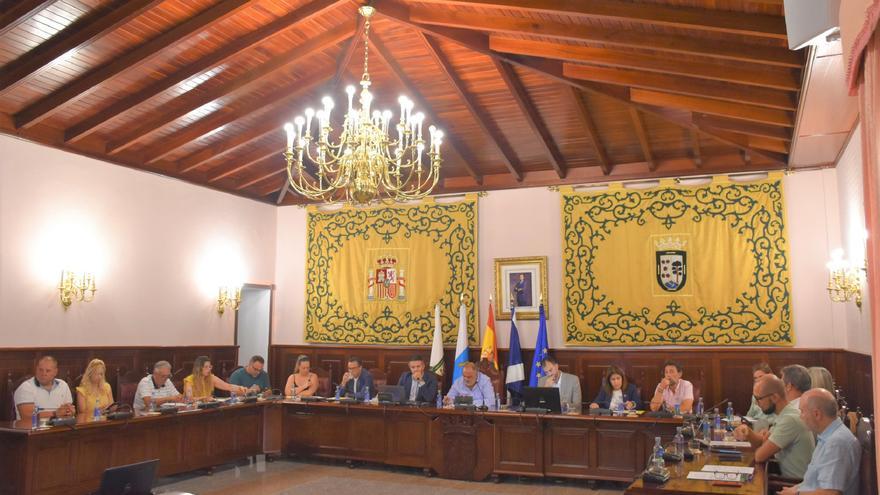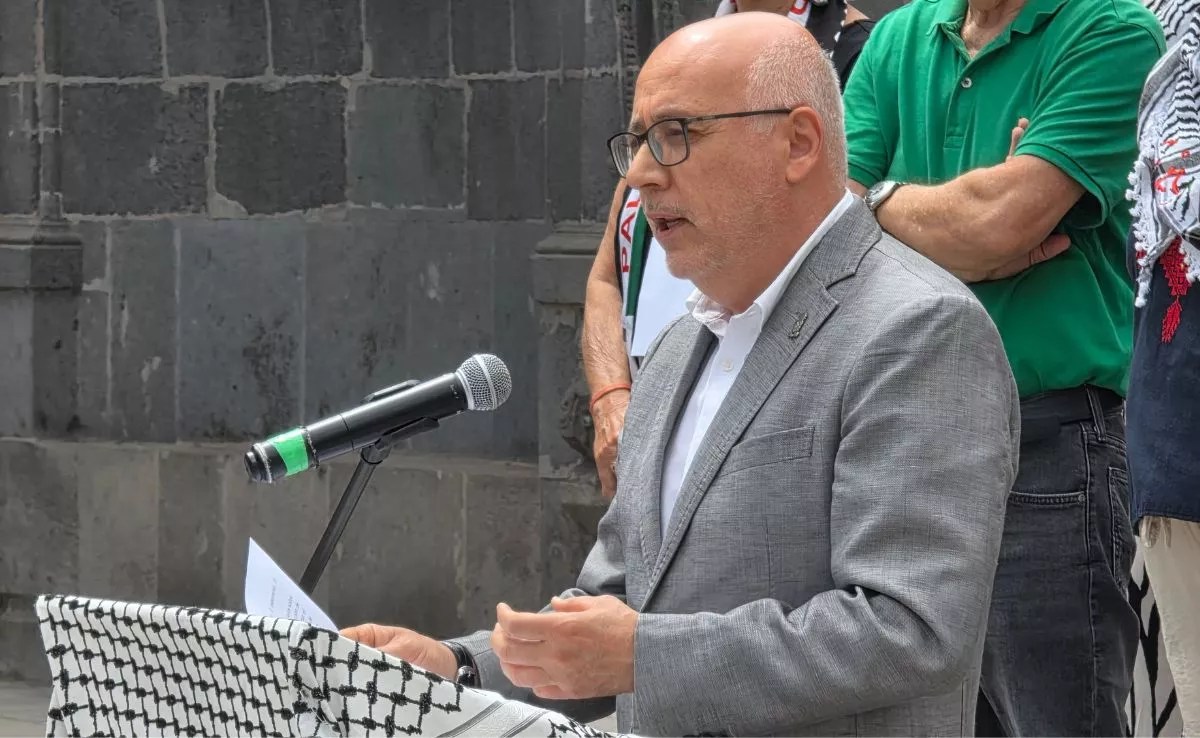
The government of the El Rosario City Council already has a division of powers for the 2023-2027 term. Mayor, scholastic gilmaintains Security and Civil Protection, while the rest of the powers are distributed among other councilors of his formation policy, Initiative for El Rosario-Verdes (IR-Verdes), which for the first time has an absolute majority in the municipality. The first deputy mayor will be Fatima Gutierrez, who will be in charge of the areas of Treasury, Social Action, Cemetery, Mobile Park and Cleaning of municipal dependencies.
Fidel Vazquez He will be the second deputy mayor, as well as mayor of Ecological Transition, Primary Sector, Animal Welfare and Mobility and Transport. Another of his classmates Juan Jesus del Rosario, establishes itself as one of the heavyweights of the organization chart. In addition to being the third deputy mayor, he will bring together Urban Planning, Public Works, Water, Human Resources and Sports.
For his part, Esther Garcia, who joins the team, will be the fourth deputy mayor and mayor of Education, Nursery Schools, Youth and Health. The concilor Yeray Gutierrez closes the mayoral tenures with the fifth and will once again be responsible for the areas of Employment and Local Development, Festivals, Public Lighting and Parks and Gardens. Jennifer Torres he will continue to lead Culture and Tourism, to which he adds Waste and Street Cleaning and New Technologies. Meanwhile, Irene Villar, another of the new incorporations, will take charge, on a part-time basis, of Equality, Participation and Patrimony.
The dedication and remuneration of the members of the government went ahead in the plenary session this Tuesday with the votes in favor of IR-Verdes (9), the abstention of CC (2) and the negative vote of PSOE, PP and Vox (5). . «The mayor’s remuneration will be 45,978 euros gross per year, 12,000 euros less than what is allowed by current legislation; the councilors with exclusive dedication will charge 39,878, 34,895 and 31,895, depending on the number of delegated areas, and the councilor with partial dedication, 28,895 euros, “the Rosario City Council detailed in a note.
The reference to the case of Escolástico Gil has to do with the fact that he could have opted for a salary of 58,080 euros per year, since that is where the limit for local councilors of municipalities of between 10,001 and 20,000 inhabitants is located. However, Gil has remained two steps below. And it is that in municipalities with between 5,001 and 10,000 residents the ceiling is 52,272 euros and in those between 1,000 and 5,000, 46,464. The leader of IR-Verdes will charge 45,978 and, therefore, will be at the level of mayors of areas with a much smaller population.
Regarding the economic allocations, the IR-Verdes spokesperson, Fátima Gutiérrez, explained that the total cost of the government “It does not reach 270,000 euros gross per year when by law it could exceed 406,000 euros.” And he added: «What makes us again a team of councilors with austere salaries and in which, as we have always done since our arrival in government, we will not charge for attendance at plenary sessions or commissions, nor will we pass invoices or receive per diems for expenses in gasoline or meals, even in the case of payments made in execution of our government responsibilities”.
The periodicity of the ordinary plenary sessions was also agreed on Tuesday. These will take place the first Thursday of every even month at 9:00 a.m. Both Escolástico Gil and Fátima Gutiérrez defended the celebration in the morning hours. The first argued that, since he is in charge of the Mayor’s Office, the plenary sessions are broadcast live and can then be seen at any time, in addition to the fact that in the last four years the presence of the public had been practically nil. Along the same lines, he explained that his call in the afternoon was causing more problems than benefits, both due to family reconciliation and the payment of overtime to civil servants and technical personnel necessary for its broadcast. The point was approved with the favorable vote of the government (9) and the opposite vote of the opposition councilors present (7).















